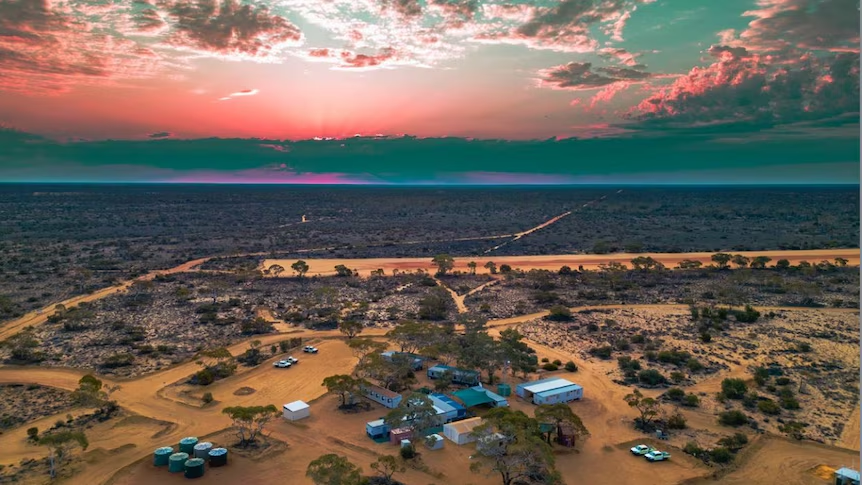In short:
WA Mines Minister David Michael has ruled out any change to the Cook government’s long-standing policy on uranium mining.
There is an effective ban on mining the mineral in WA, where only one uranium mine is permitted to operate.
What’s next?
Peter Dutton says the ban is “ideologically based” and should be overturned.
Western Australia’s mines minister has rejected calls from federal Liberal leader Peter Dutton to overturn the state’s long-standing ban on uranium mining and insisted that future energy needs will be met by renewable sources.
The state has had an effective ban on mining the nuclear fuel since Labor was swept to power in 2017, while Mr Dutton has made nuclear power development the centrepiece of the Coalition’s energy policy.
Speaking on the sidelines of this week’s Diggers and Dealers Mining Forum in Kalgoorlie-Boulder, Mr Dutton said the WA policy should be scrapped.
But WA Mines Minister David Michael, who attended the final day of the forum, poured cold water on the idea and said the state government’s stance on uranium would not be changing anytime soon.
“WA Labor, for two elections, has committed to not approving any uranium mines and there is no intention to change that policy,” Mr Michael said.
‘A one-horse race’
Colin Barnett’s Liberal-National Government approved four uranium projects before it lost the 2017 WA election.
Only one of those projects, Mulga Rock, about 300 kilometres north-east of Kalgoorlie-Boulder in the Great Victoria Desert, still has approvals in place to mine after it achieved “substantive commencement”.
The government’s approach, global financial pressure and community concerns have all played a role in the resource’s prospects in WA.
Mulga Rock was acquired by Perth-based Deep Yellow via its 2022 merger with Vimy Resources.
“That means it’s a one-horse race,” the company’s Australian exploration manager, Xavier Moreau, told the Diggers and Dealers conference.
He said the company was aiming to complete a revised feasibility study in 2025 and was targeting production at Mulga Rock in 2028.
Mr Michael said he spoke with officials from Deep Yellow at Diggers and Dealers and believed renewables such as wind, solar and battery storage were a safer bet than uranium.
“I think it’s more important to focus on critical minerals in terms of the renewable future,” he said.
“We know that renewable energy is what the world moves to sooner or later.
“We know that’s what we need to tool up for in WA, and we’re doing it.”
Calls to overturn ban
Speaking at Diggers and Dealers on Monday, Mr Dutton said WA’s opposition to uranium mining was “ideologically based”.
“If we look at what’s happening across the world in relation to uranium demand, of the top 20 economies in the world, Australia is the only one that doesn’t have or hasn’t signed up to nuclear power,” he said.
“We know that the United States, France, Russia, China, the United Kingdom, now Australia, many other countries, are using nuclear propulsion systems for their submarines.
“Why would we be stopping ourselves from earning additional income for our country, creating extra jobs?”
Warren Pearce from the Association of Mining and Exploration Companies said WA had large deposits of uranium and could safely mine yellowcake.
“The uranium ban should go … there’s simply no place for it,” he said.
“It’s important for the world’s global decarbonisation targets.
“We can play an important role in that and create a new industry here in Western Australia.
“We’ve got companies exploring and wanting the opportunity to mine — the ban should go.”


